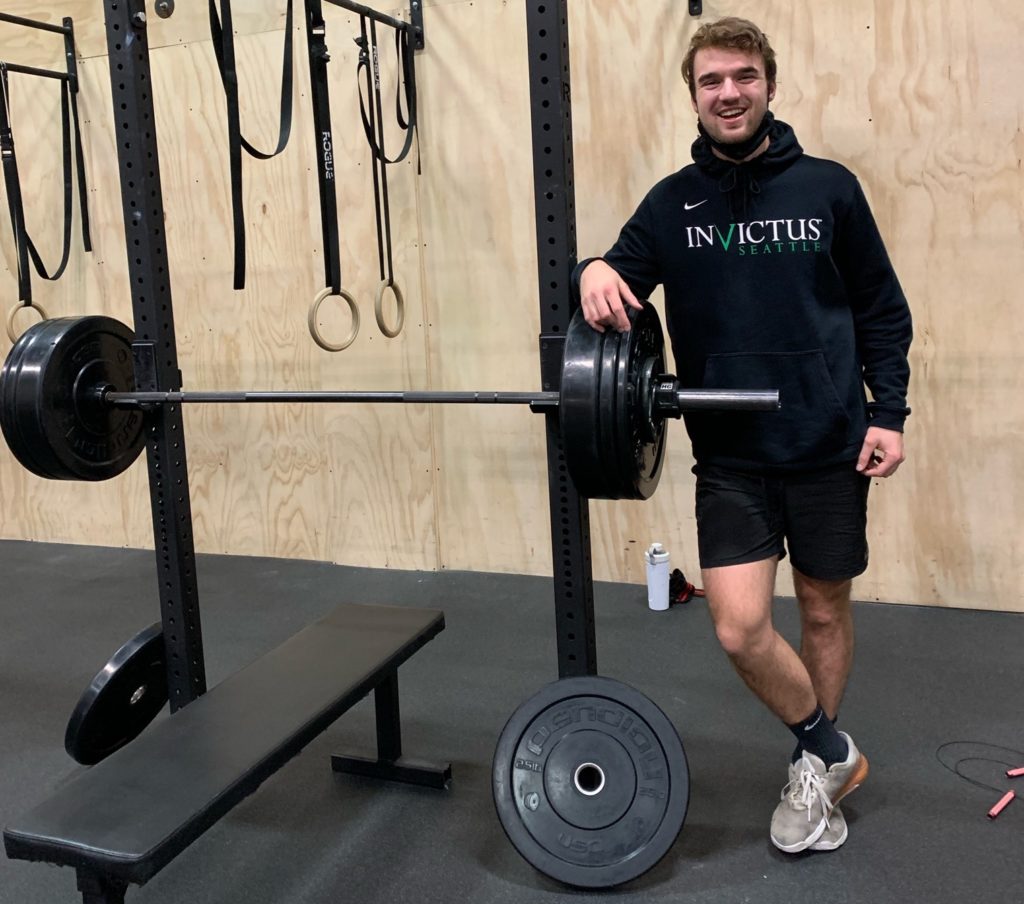
Why We Recommend Resistance Training for Fat Loss
Written by Aggie Stern
Many people ask about reducing fat, leaning down, or losing weight. This is totally understandable after months of less activity and higher stress. First off, I’d like to say that being our most lean does not necessarily mean we are our most healthy, and body fluctuation is perfectly normal. Pretty much, try not to stress it! But if you are interested in focusing on leaning down as a long-term goal, this is for you!
Here’s the thing. We have a natural tendency to store fat. It is a handy trick our bodies do to protect us in times of famine. Today, our risk of famine is much less likely than it was way-back-when, so our bodies store the extra energy in the form of fat.
But what if we want to lean down? We expend energy (calories) whether we are doing physical activity or just sitting on the couch.
Basal Metabolic Rate
The energy we expend when at rest is our Basal Metabolic Rate (BMR). BMR includes the calories needed to keep your heart beating, your lungs breathing, and all of the other required functions we don’t have to think about. Another important function of BMR is maintaining lean muscle mass. The more lean muscle mass we have, the higher our BMR will be. When lean muscle decreases, our BMR decreases, meaning less of the calories we intake will be used to keep our body functioning, and the excess will be stored as fat.
To put it in simpler terms: more lean muscle=higher BMR=faster metabolism=fat loss. This is one of the reasons why we recommend resistance training in addition to cardio for optimum fat loss.
The Cardio Fat Loss Myth
Ironically, many people who want to lose fat tend to neglect resistance training and opt for more cardio. While cardio is necessary for our health, forgoing weight training can decrease our BMR, leading to a “slower” metabolism. This may lead to a frustrating cycle for those who rely on cardio and wonder why they are not achieving their desired results. Often, they may try to reduce their food intake in response, which can in turn decrease their lean muscle mass, damaging metabolism further.
Resistance Training & Fat Loss
So, how can you increase BMR and prevent this cycle? Well, let’s talk about that!
Build more muscle! Do your best not to focus on the unwanted fat right now. Don’t worry about getting bulky. Trust me on this. Unless you are trying specifically to “bulk up”, you will not get bulky. Our programming is not going to get you bulky, but it WILL help you build lean muscle mass. Higher reps with lower weights, as seen often in our Fitness program, are ideal for building this muscle as are the compound lifts seen in Performance. However, it is the athlete’s job to put as much effort into the strengthening (Part A) part of the workout as they do into the conditioning (Part B).
Nutrition & Fat Loss
No matter which exercise plan you follow, you can only go so far without focusing on what you put into your body. This does not mean going into a calorie deficit. Remember, lean muscle requires MORE energy (calories); if we go into a caloric deficit, there is a risk of losing muscle mass. The key to nutrition is to focus on eating what is going to fuel you the most, focusing on lean proteins, vegetables, healthy fats like nuts and seeds, fruits, and whole grains. Limit processed foods and cane sugar when possible. Sometimes it won’t be possible, and that’s perfectly ok! Quick rule of thumb: think of the outer walls of the grocery store. Fat loss does not happen overnight, and any long-term lifestyle change requires flexibility. If you want some guidance on nutrition, reach out to Coach Fritz about the Invictus Nutrition Program and individualized nutrition plans.
In summary: keep your goals long term, take advantage of strength training, and eat a diverse diet with lots of plants and plenty of protein.
Also Check Out…